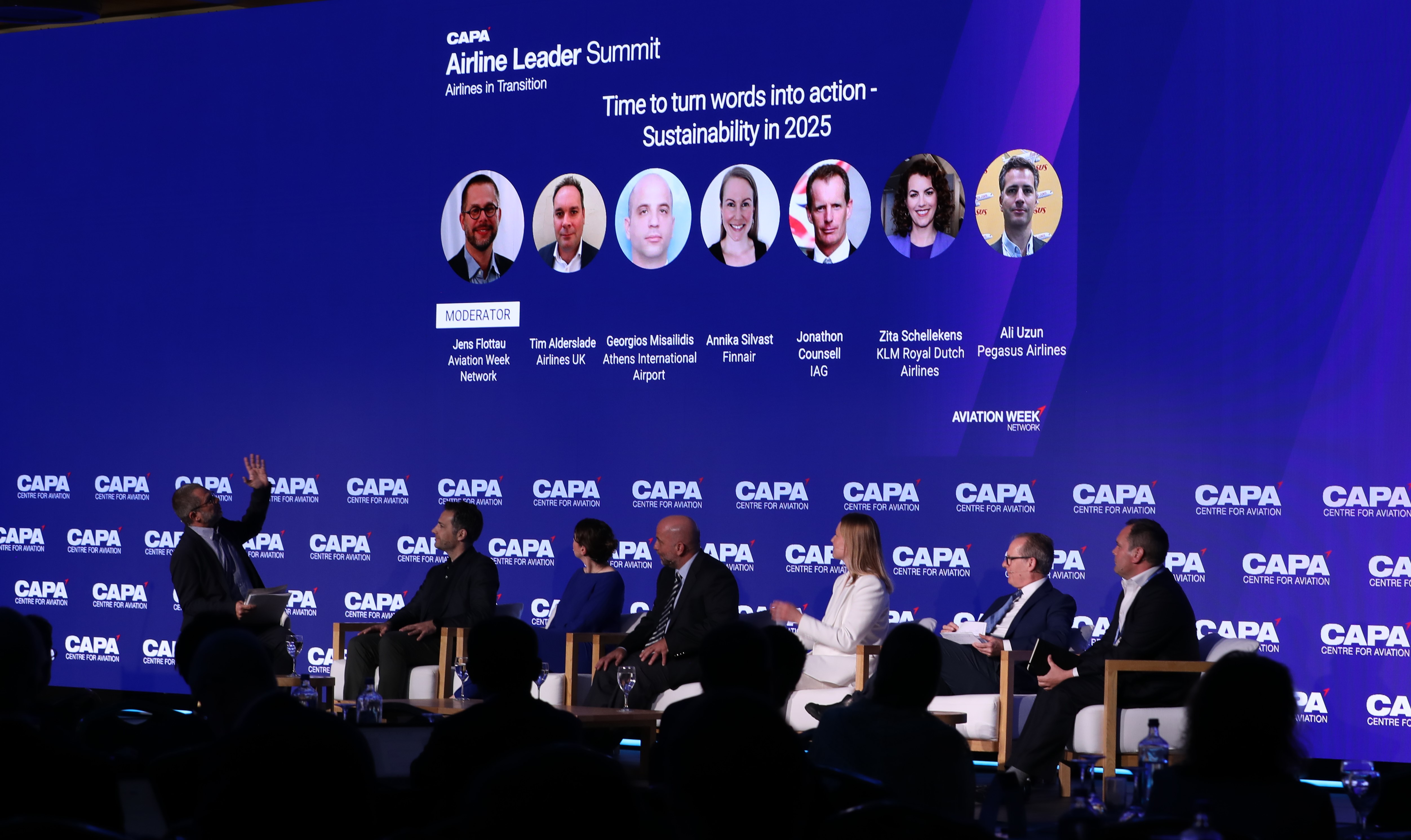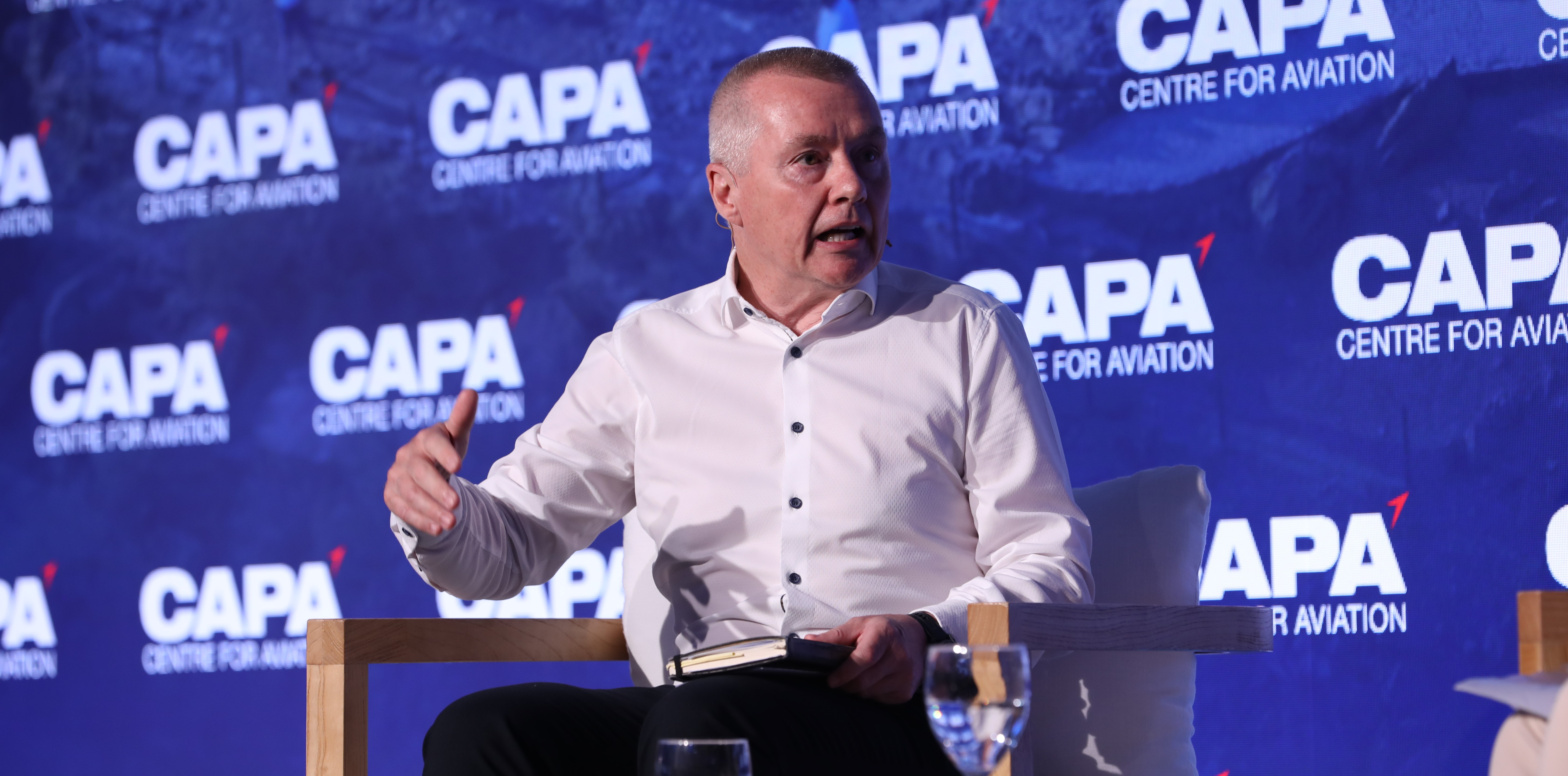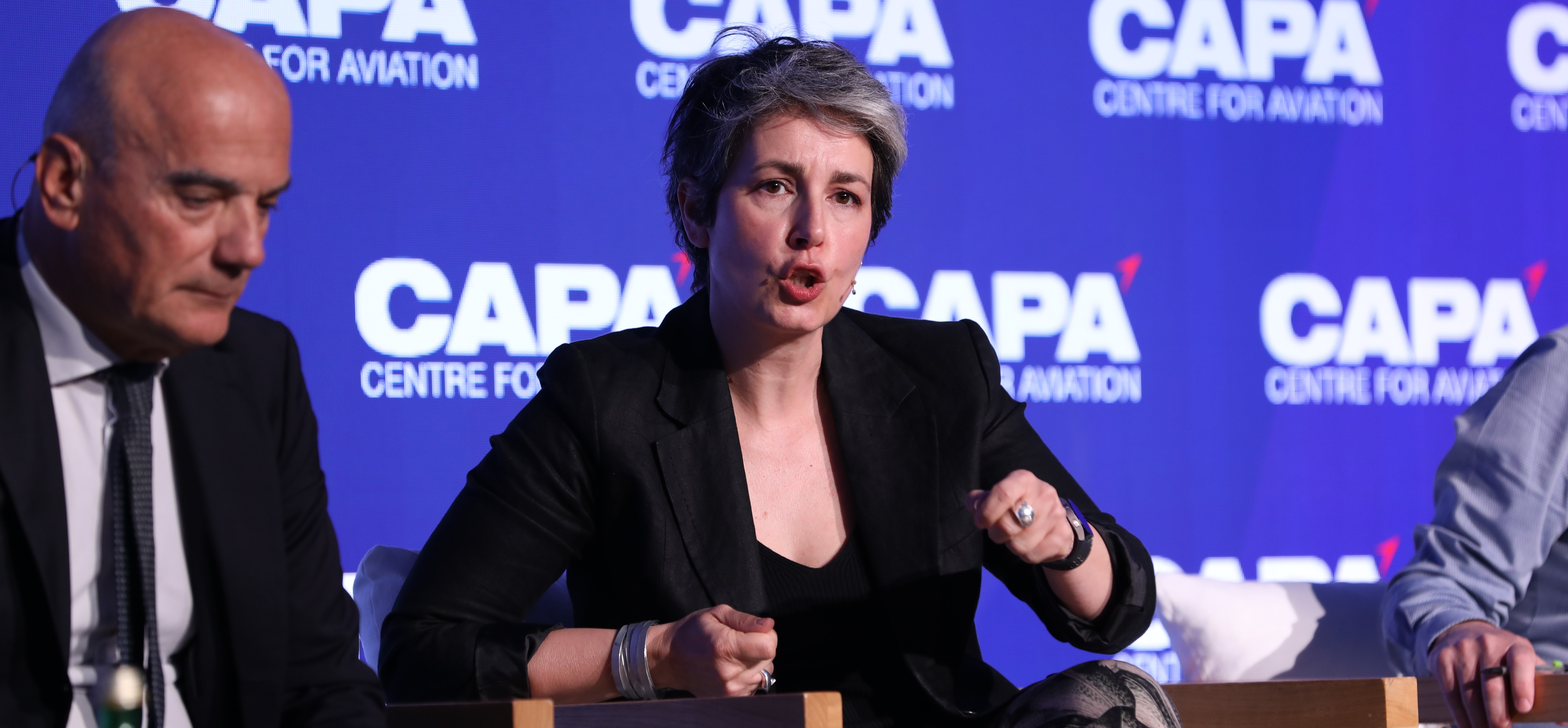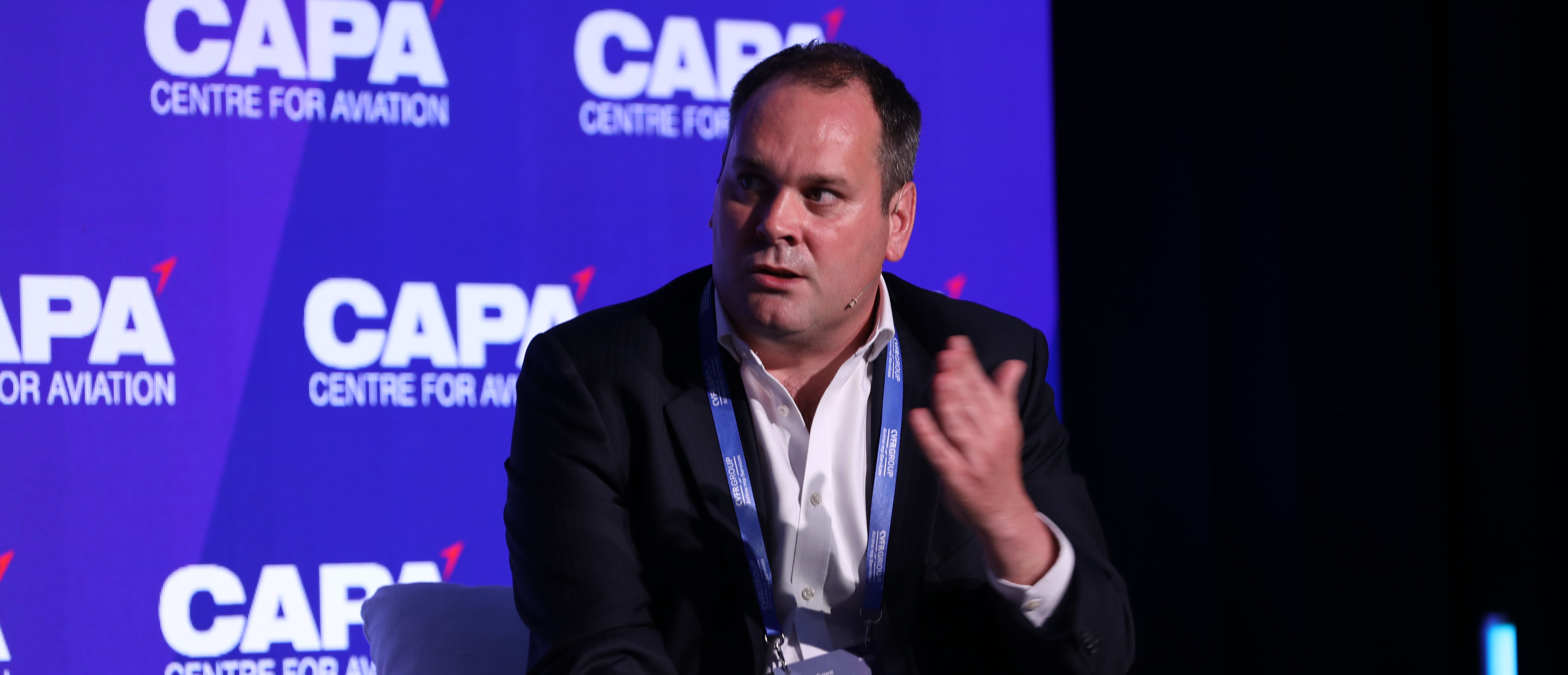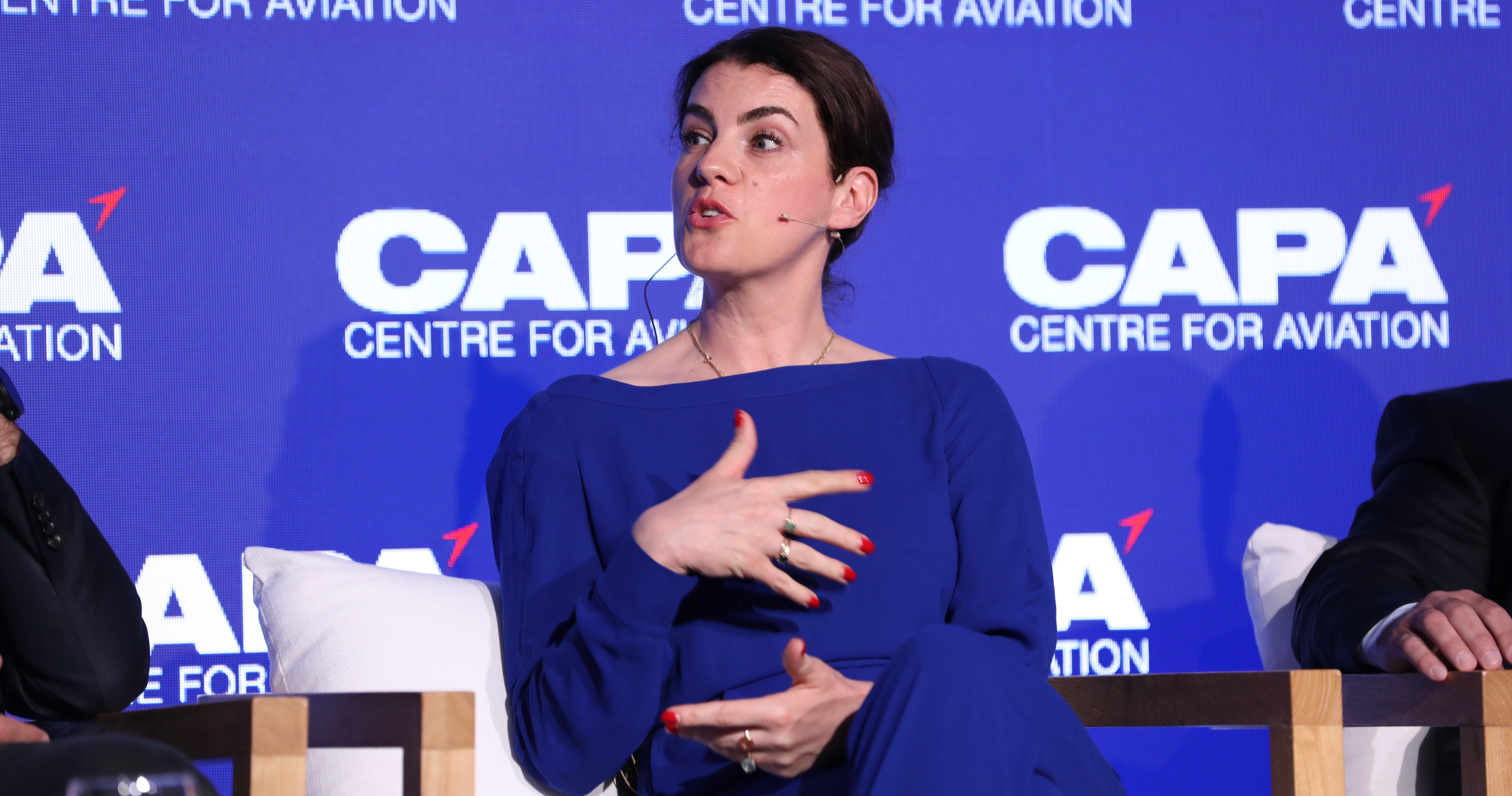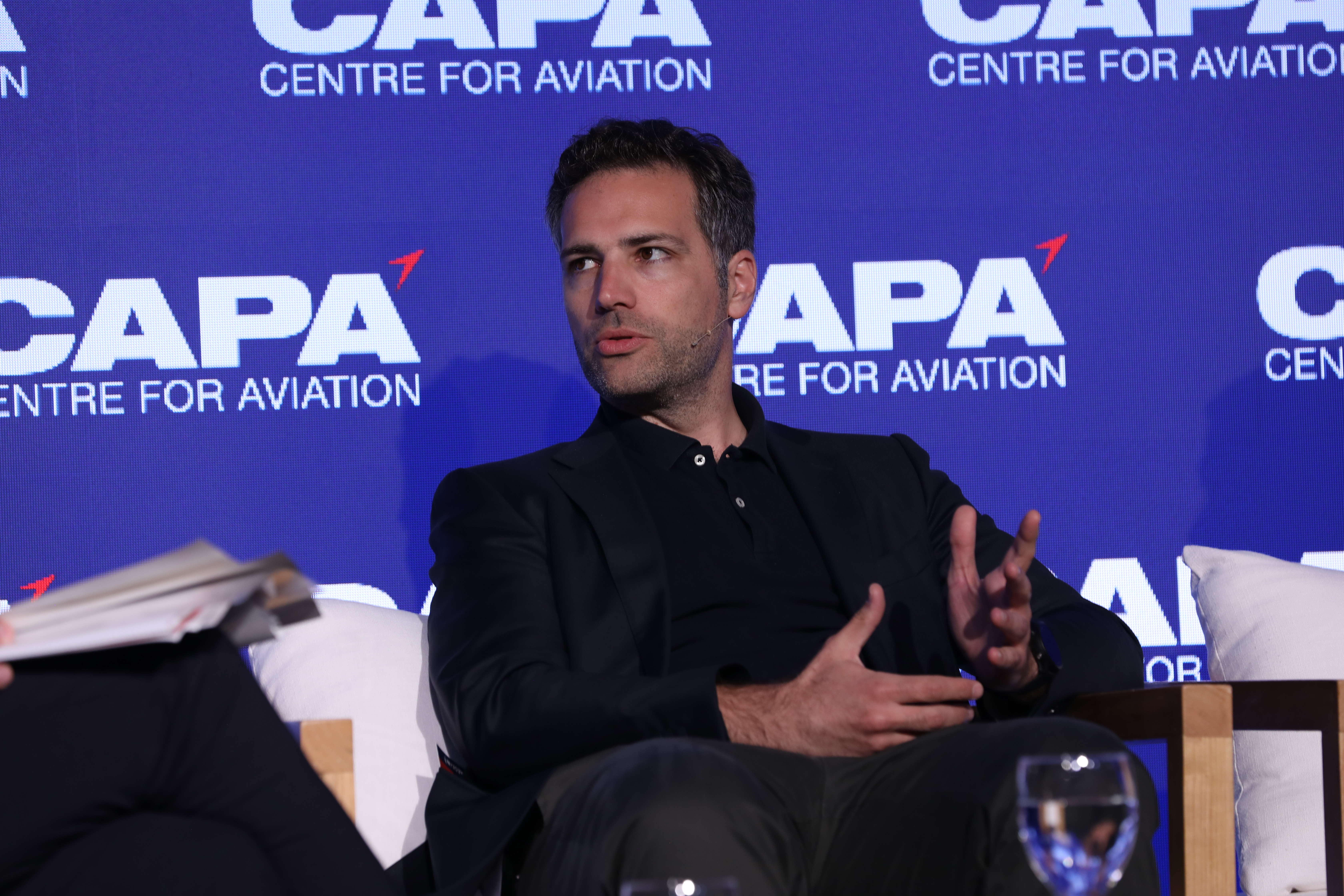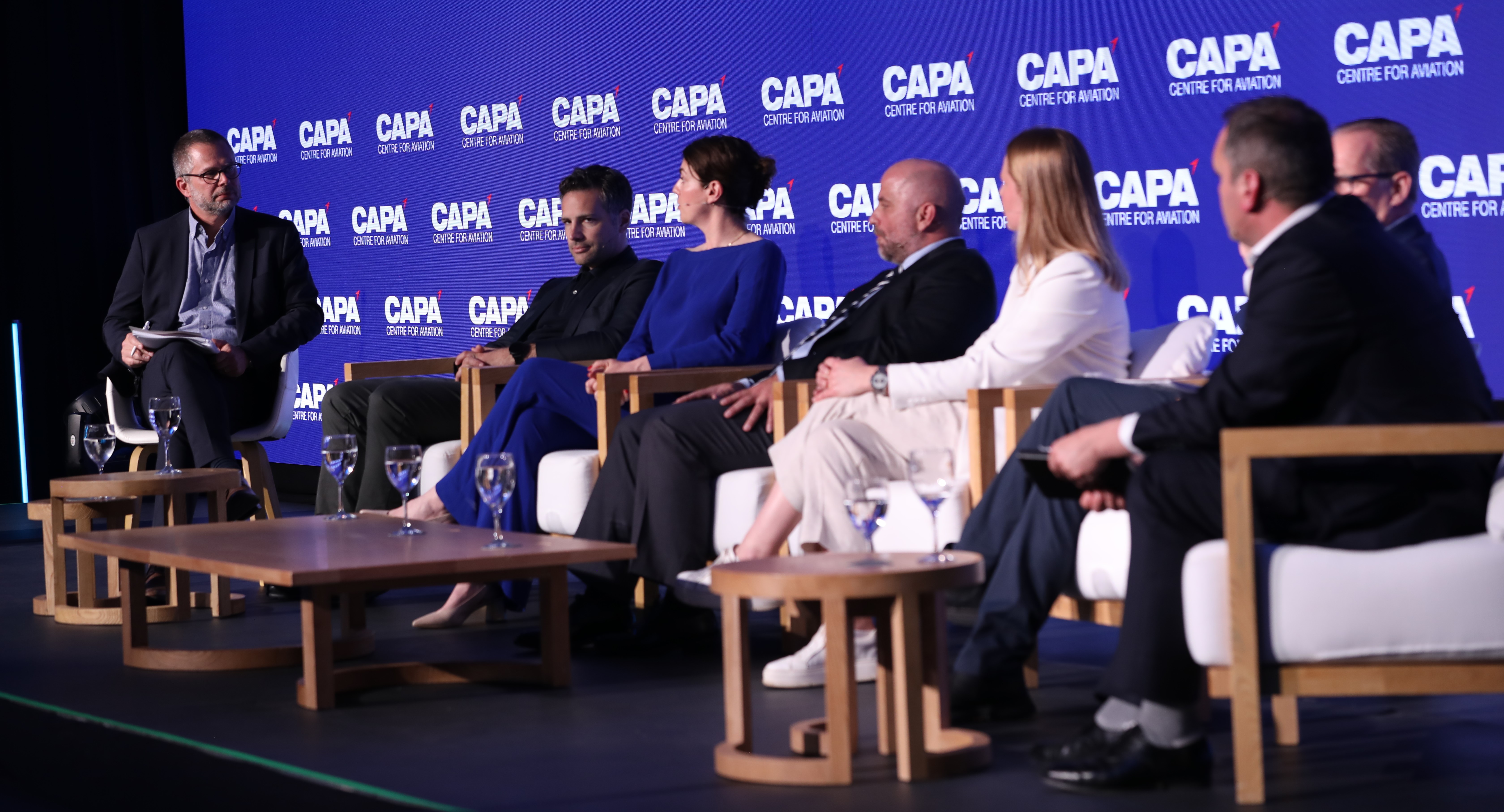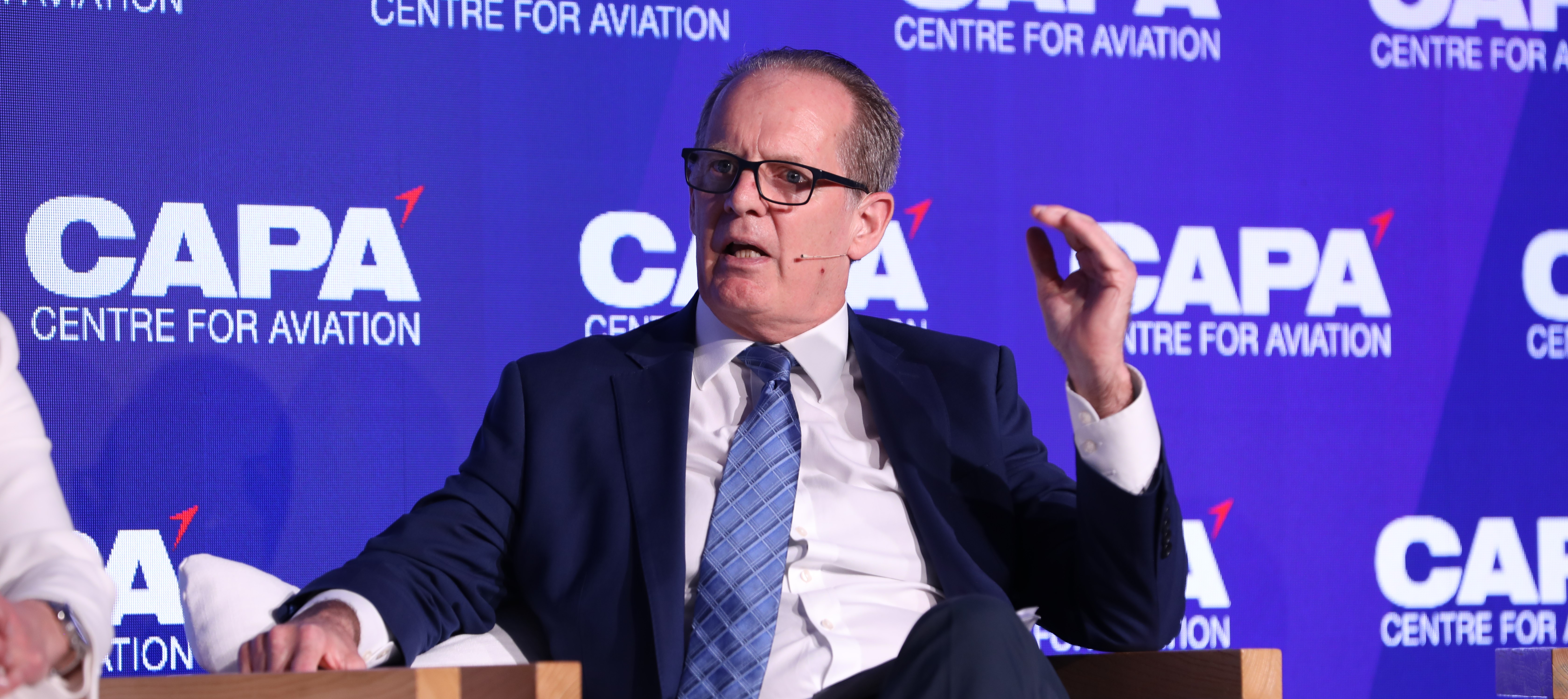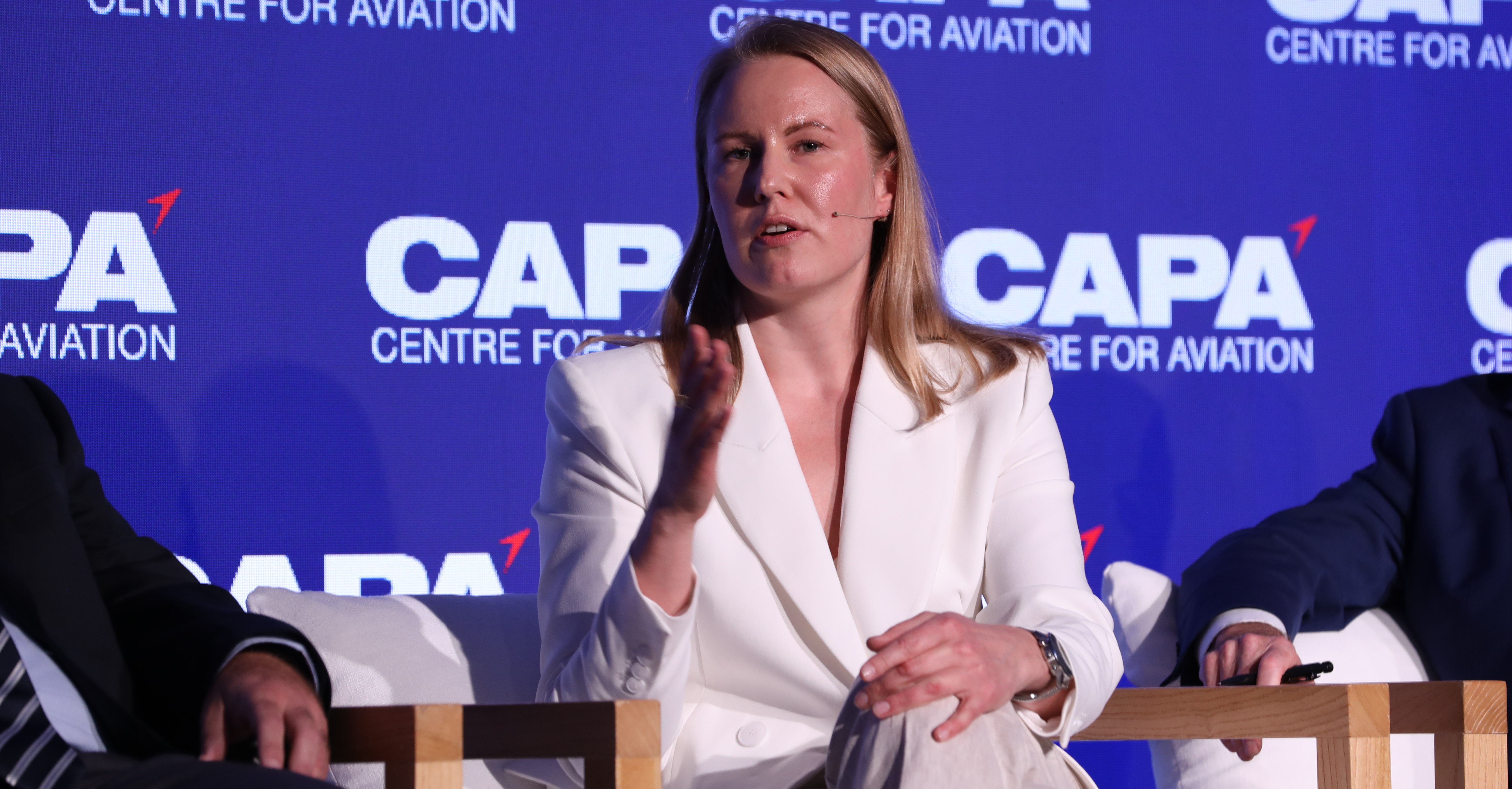Aviation sustainability: time to turn words into action
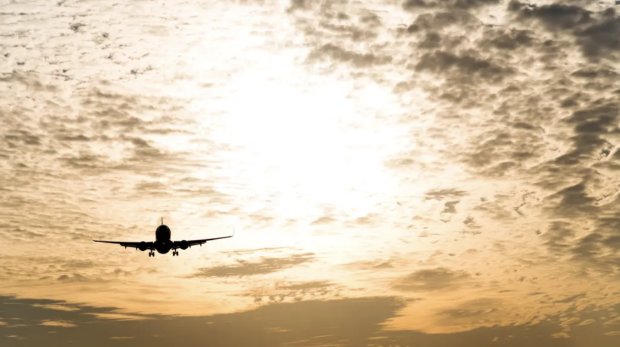
Sustainability in aviation was a key theme at the CAPA Airline Leader Summit - Airlines in Transition in Athens on 8/9-May-2025.
IATA Director General Willie Walsh reiterated aviation's commitment to net zero carbon emissions by 2050. However, the world geopolitical backdrop is changing.
According to KLM SVP strategy, sustainability and transformation Zita Schellekens, "Worldwide, I think climate change has been largely politicised, unfortunately. It's science; it shouldn't be political at all".
"This is about climate change, and we're all disappointed in some of the political narrative that is going on," said IAG group sustainability officer Jonathon Counsell. "Climate change is driven by science and not politics, and this problem is not going away."
There was much discussion on the need to encourage the ramp-up in the production of sustainable aviation fuel (SAF) in addition to emissions intensity improvements from aircraft technology and operations.
As Mr Counsell said, "Why are we doing all these things to reduce emissions? It's about protecting our right to grow. Aviation delivers huge social and economic benefits".
Summary
- Have aviation sustainability efforts slowed? No and yes. Net zero by 2050 is still achievable.
- SAF is expensive. Mandates are not enough, revenue certainty is needed, and is on the way in the UK (but not quickly enough). The US has more SAF than Europe.
- Customer engagement with SAF is low, but better with corporate customers and loyalty scheme members.
- Efficiency gains are available from existing aircraft propulsion methods. Airlines are investing in new technologies, but government backing is also needed.
- Operations and ATM: no progress on European Single Sky.
- Market-based mechanisms and carbon removals are important, but capping demand is “greenwashing”.
- The US administration’s impact on aviation sustainability “encouraging” so far.
- "Doing nothing is the most expensive thing we can do, or not do".
Have aviation sustainability efforts slowed?...No and yes
In the summit's main panel session on sustainability, moderated by Jens Flottau of Aviation Week Network, Airlines UK CEO Tim Alderslade rejected the suggestion that sustainability efforts in aviation have been slowing down in the UK.
"The UK Government is justifying significant airport expansion, and that is predicated on investment in SAF and progress on SAF and hitting net zero. In a way[,] the government have bought into the process in a way the industry has for a number of years, and that's really quite exciting."
Time to turn words into action - Sustainability in 2025 panel at the CAPA Airline Leader Airlines in Transition Summit in Athens in May-2025
Source: CAPA - Centre for Aviation.
However, KLM Royal Dutch Airlines SVP strategy, sustainability and transformation Zita Schellekens concedes that "it seems like we talk a lot less about sustainability, and I think that's true".
She adds that this is "because so many of us have been slandered almost with greenwashing claims, and to some extent rightly so, because some of us, or companies in general, made green claims a little bit too easily. However now it's shifted towards greenhushing, and doing little to engage and excite customers".
Net zero by 2050 is still achievable
In Mar-2025 this year IATA director general Willie Walsh reportedly cast doubt over aviation's commitment to net zero carbon emissions by 2050.
However, at the CAPA Summit in Athens in May-2025, he reiterated his belief in the achievability of this important target. "Net zero by 2050 is a target that is achievable," he said.
IATA, DG, Willie Walsh at the CAPA Airline Leader Airlines in Transition Summit in Athens in May-2025
Source: CAPA - Centre for Aviation.
However, Mr Walsh cautioned that he does not see interim targets as being achievable.
"A 2030 target was a very dangerous thing to do, because the ability for the industry to adjust to CO2 reduction in that short period is going to be really challenging".
He fears that failure to meet interim goals could be used against aviation: "If these targets aren't achieved, those that are critical of the industry will use that against us".
Sustainable aviation fuel (SAF) is critical to decarbonisation of aviation, but issues remain
SAF is expensive
Everyone aggress that sustainable aviation fuel (SAF) is critical to the decarbonisation of aviation. More time is devoted to discussion on SAF than on any other sustainability topic.
However, its production and use, so far, is at very low levels.
Speaking on a panel focusing on European aviation at the same CAPA summit, Airlines for Europe MD Ourania 'Rania' Georgoutsakou identified the key challenge: "The biggest obstacle to uptake of SAF is the price - it is unaffordable".
A4E, MD, Ourania Georgoutsakou at the CAPA Airline Leader Airlines in Transition Summit in Athens in May-2025
Source: CAPA - Centre for Aviation.
IAG group sustainability officer Jonathon Counsell is more positive about the future: "SAF is expensive today, but prices are going to come down."
"Every single renewable technology has reduced 10 times as you've scaled up," he said, "Now wind and solar is cheaper than fossil fuel-powered electricity."
Mandates are not enough, revenue certainty is needed…
The EU and the UK have issued mandates setting out the growing proportion of aviation fuel that must be SAF over the years until 2050.
Airlines UK CEO Tim Alderslade noted that the UK government had "legislated for a 10% SAF mandate by 2030" and believed that "interim targets can be helpful".
However, he argues that "the mandate is not enough".
It provides demand for SAF, but the "clear message from the banks and investors and the producers is we cannot get the final investment decision until we get revenue certainty in place".
Mr Counsell picks up this point: "Mandates play a role but they have to be supplemented by incentives if we're going to get these plants built."
Mr Alderslade pointed out that users can buy SAF anywhere in the world, and governments would see the economic opportunities of SAF production in their own country.
"Energy security is becoming more of a thing, governments will also want own supply," he said.
KLM Royal Dutch Airlines' Zita Schellekens agreed that airlines would be willing to buy SAF if the price came down.
At the same time, she noted, "investors are saying we can only invest in factories if you have guaranteed demand, which we can't do as long as we don't know the prices".
"Oil and gas producers are not interested at lower prices, so you see a lot of them taking a step back."
Governments can help this market to develop by providing contracts for difference.
"Producers say 'this is the minimum price at which we are willing to produce'," said Ms Schellekens, "and airlines and other off-takers say 'this is the maximum price we are willing to pay' and the government can then step in and cover the difference."
…and is on the way in the UK (but not quickly enough)
The UK is now working on a revenue certainty mechanism using contracts for difference to provide a guaranteed price for SAF producers.
"Once that's in place," said Mr Alderslade, "the UK is really at the races".
There will be a mandate and price certainty and "we really should start to see a number of plants start to pop up in the next five or six years, but without that, we are not getting anywhere".
Airlines UK, CEO, Tim Alderslade at the CAPA Airline Leader Airlines in Transition Summit in Athens in May-2025
Source: CAPA - Centre for Aviation.
Contracts for difference have helped to develop other new technology energy sectors like wind and solar power.
However, Mr Alderslade argued that it needed to be "a lot quicker" than the UK government's planned timeframe of 18 months for aviation.
"We've been talking about this for a long time," he said.
The US has more SAF than Europe
The US has a more developed SAF market than Europe.
According to IATA's Mr Walsh, "European airlines are buying SAF (sustainable aviation fuel) in the US because it isn't available in Europe".
"There's plenty of feedstock, you know, all of the conditions exist for SAF to be supplied to the industry at scale with the right support from governments."
However, he said, in Europe "this isn't happening, it is not coordinated".
Customer engagement with SAF is low…
According to KLM's Ms Schellekens, "Very few [customers] buy SAF, with us it's around 0.9% conversion rate and I haven't seen anything above 2.5% (at Air New Zealand)".
KLM Royal Dutch Airlines, SVP Strategy Transformation & Sustainability, Zita Schellekens at the CAPA Airline Leader Airlines in Transition Summit in Athens in May-2025
Source: CAPA - Centre for Aviation.
She said, "We know a lot of our customers feel some type of discomfort when they fly, because they care about climate change and they realise the effects of aviation, but they are not really capable of bridging that say-do gap".
…but better with corporate customers and loyalty scheme members
According to IAG's Mr Counsell, "It is working with corporate customers on SAF Scope 3 sales" - a reference to emissions for which a client company is indirectly responsible through activities such as business travel.
"This has been incredibly successful," he added, "and enabled us to double the amount of SAF we've bought".
Mr Counsell also said that a recent British Airways reorganisation of tier points in its loyalty scheme allows individual customers additional points if they buy SAF, and this had "gone ballistic".
Ms Schellekens argued: "We need to excite and charm and seduce our customers, either B2C or B2B, to actually play a role and purchase more SAF."
"The customer needs to help us decarbonise," she said; "It's an opportunity and a threat at the same time."
Mr Counsell noted, "Fundamentally we are not going to solve the problem voluntarily, it has to be through compliance schemes".
Aircraft technology is important area for emissions intensity reductions
Efficiency gains are available from existing propulsion methods
Improved aircraft technology, using existing propulsion methods, is another important area for emissions intensity reductions.
Airlines are always pushing OEMs for efficiency gains.
Pegasus Airlines general counsel and sustainability director Ali Uzun said that, as a growth airline for the past 20 years and potentially the next 10 years, its absolute emissions were increasing.
"What we can do is be as efficient as we can, which means our emissions intensity. We have the lowest CASK ex fuel in the industry, to the extent data is available, so we focus on efficiency and lower fuel burn. That's our strong suit, it's in our business model and now we are using it to improve on sustainability."
Pegasus Airlines, General Counsel & Sustainability Director, Ali Uzun at the CAPA Airline Leader Airlines in Transition Summit in Athens in May-2025
Source: CAPA - Centre for Aviation.
"Fuel efficiency is one of the key criteria in aircraft purchase decisions," said Mr Counsell, "where we look at the cost of fuel plus carbon".
"There is no radical new design," he added, "but versions improve in efficiency".
According to Ms Schellekens, there is an "average 25% improvement in efficiency with new aircraft models".
"This is never enough," she admitted, "but there is nothing else we can do with such a big impact".
Mr Uzun agreed: "Aircraft technology efficiency improvement is the most tangible step towards reducing emissions and likely to be so for the next 10 years or so."
Airlines are investing in new technologies, but government backing is also needed
IAG is an investor in ZeroAvia, which is a leading hydrogen fuel cell company developing hydrogen-electric engines for commercial aircraft.
"Airlines should play a role [in investing in new technology]", said Mr Counsell. However, he added: "It will take more than that, it will need billions of dollars - a mix of demand support from airlines in orders, as well as investing in the technology, but ultimately government is going to have to back it".
Ms Schellekens said that KLM was working with the Technical University of Delft on a "Flying V, which is up to 40% more economical/less emitting," testing a 1.5m long version, so it is in the early stages.
She added that KLM is also looking at what can be learned from nature - for example flying formations of birds, the application of shark skin (a foil that reduces drag) to aircraft, wings that move like birds - to present ideas to OEMs.
"We need to grab every opportunity for improvement there is," she said.
Operations and ATM: no progress on European Single Sky
A number of speakers referred to the 10%-12% reduction in fuel burn and carbon emissions that could be achieved by implementing the long anticipated Single European Sky, which would integrate air traffic management across most of the continent.
According to IATA's Mr Walsh, "The idea that we've made any progress on the Single European Sky is nonsense".
"Every flight in Europe is 49km longer than it should be because of the lack of a Single European Sky," he said. "It will never happen if we give up talking about it. We can't give up on the Single European Sky".
Market-based mechanisms and carbon removals are important…
Economic measures, or market-based mechanisms, and carbon removals, are a further important decarbonisation pillar to reach net zero in 2050.
According to Mr Counsell, IAG's decarbonisation roadmap is "40% operational efficiency and new aircraft technology (Hydrogen is only 5% within this), 40% SAF, 20% carbon removals".
Time to turn words into action - Sustainability in 2025 panel at the CAPA Airline Leader Airlines in Transition Summit in Athens in May-2025
Source: CAPA - Centre for Aviation.
Carbon removals are important, but he said "We can't just go out with a narrative on carbon removals and ignore SAF. We don't know if it will work at scale, and every other industry is competing for carbon removals".
Demand reduction falls under the heading of economic measures. To some extent, this will result from the increased costs of air travel due to the cost of new technology.
…but capping demand is 'greenwashing'
However, a number of governments are also considering, or are already imposing, taxes and levies to manage demand for air travel. In some cases, limits are being considered on traffic volume - for example, on domestic flights where there is a high-speed train alternative.
Mr Walsh is adamant in opposing this type of demand management.
"The only place where I hear discussions around capping demand is in some parts of Europe, and I call that greenwashing", he said. "Reducing domestic flying is completely ridiculous. We don't need to suppress demand we need to make our system efficient and eliminate waste".
The US administration's impact on aviation sustainability 'encouraging' so far
In spite of concerns about some of the political narrative, Mr Counsell said that the early evidence concerning the new US administration is "encouraging", from a sustainability point of view.
"You have to work with your politicians, adapt the narrative to suit the administration. We don't call it sustainable aviation fuel, we call it synthetic aviation fuel. This plays into one of the prime policy requirements in the US: global energy dominance".
He added that the US was not interested in climate change - but it was interested in selling SAF to the rest of the world. He noted that many SAF plants were in the Midwest in Republican states, "so the people that are hardest for SAF policy are Republican Senators".
IAG, Group Sustainability Officer, Jonathon Counsell at the CAPA Airline Leader Airlines in Transition Summit in Athens in May-2025
Source: CAPA - Centre for Aviation.
"We expect to see a positive announcement about the sustainable fuel standard. They have approved six loan guarantees on SAF plants in the last three months."
"It's pretty unpredictable, and there's no question that the current administration has caused some uncertainty so investment has slowed down, but generally the direction is that they want this, including the US airline industry".
'You should care about the impact of climate change on aviation'
KLM's Ms Schellekens turned the focus on aviation's impact on climate change around and looked at it the other way.
"Even if you don't care about climate change personally, you should care as a company because the effect of climate change on our industry will be quite detrimental."
She noted the adverse impact on aviation from climate change in areas such as "jetstreams, higher temperature, more storms, more lightning, more turbulence".
'Doing nothing is the most expensive thing we can do, or not do'
Summing up the approach aviation is taking on sustainability, Mr Counsell said, "You need options, you can't just rely on technology, and you can't just rely on SAF or carbon removals".
Finnair project director SBTi Annika Silvast argued that a multisectoral approach is needed.
Finnair, Project Director SBTi, Annika Silvast at the CAPA Airline Leader Airlines in Transition Summit in Athens in May-2025
Source: CAPA - Centre for Aviation.
"We have tried to be the catalyst for sustainability conversations and get together with technology and electricity providers and everyone in that value chain to talk about this challenging issue."
However, Ms Silvast cautions, "We can fall into a trap of talking about sustainability in a way that is too complicated, we really need to tell a story in a way that is easy for customers to understand their contribution".
The time for action is now, she said. "Doing nothing is the most expensive thing we can do, or not do".
Watch EXCLUSIVE CAPA TV video from the CAPA Airline Leader Airlines in Transition Summit in Athens
2024 was the hottest year on record, with global temperatures nearly 1.5°C above the pre-industrial average.
For the aviation sector, goals have been set, agreements made and targets established but precious little progress is apparent.
This panel took a hard look at how the industry is turning objectives into action and is getting on with the difficult task of decarbonisation and meeting the challenge of sustainability.



